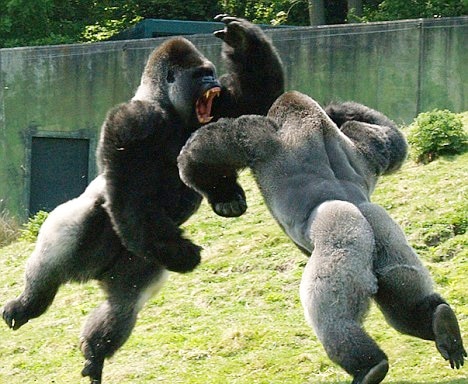You know how conservatives always have those big sign-on letters, listing X number of experts who disagree with evolution, or don’t think global warming is human caused?
You know you know what I mean. You know it drives you completely crazy.
In this post, I want to tell you why it works. To do so, I’m going to build on a recent article I did in The American Prospect, explaining how the Democratic Party in the U.S. today has become the chosen party of academics and experts–but that conservatives have more than enough allied experts of their own to keep it…interesting.
Here’s one way to describe the basic statistics, which simultaneously reflect both the broad expansion of higher education and also a leftward migration of academia and expertise:
The Democratic Party has become the chosen party of what you might call “empirical professionals” and Americans with advanced degrees. According to research [the University of British Columbia’s Neil] Gross conducted with Ethan Fosse of Harvard University and Jeremy Freese of Northwestern University, nearly 15 percent of U.S. liberals now hold one, more than double the percentage that did in the 1970s. The percentage of moderates and conservatives with advanced degrees has also increased but lags far behind the saturation levels of expertise among liberals. Indeed, conservatives are about where liberals were back in the 1970s.
Forget for the moment why things are this way. Let’s just ponder the consequences.
Experts are well educated people. They’re confident, they know how to do research, they know how to cite sources and argue. So what happens when you have a politicized gap with more experts on one side than the other?
First, the experts on both sides argue with each other—in print, on tv, in their own minds, or wherever—and both sides become more convinced they’re right. The theory of motivated reasoning predicts that the sophisticated are capable of becoming more extreme and polarized, thanks to both their confidence and also their competence. They’re better at reinforcing their own views.
Second, for the non-experts out there, whatever side you’re on, it’s easy in this situation to find an expert who supports what you believe. And indeed, for the very same basic psychological reason, you’re not only more likely to find an expert who agrees with you than one that doesn’t (due to confirmation bias), but also to believe that person the person who agrees with you is a real expert, whereas the one who disagrees with you is a fake one. This was shown in a recent, amazing study by Dan Kahan at Yale, in which people with different values tended to discredit the expertise of experts who were depicted as supporting positions that were contrary to their values.
Third, when all of this plays out in the media–at least insofar as it’s a typical expert-versus-expert on-the-one-hand-on-the-other-hand show–you can expect the public to leave feeling confused about who’s right and what’s true. Again, there’s research on this. I’ve blogged about it here. The Ohio State University communications professor Raymond Pingree has shown that “passive” media coverage, where reporters don’t take sides on who’s right about the facts, leaves media consumers less sure that the truth is “out there” somewhere that they can actually grasp it.
So we have a situation in which our experts get polarized, while everybody else either finds their own convenient expert or just thinks the experts don’t really know anything (or there’s no real way to find out what they know). The result? Pretty negative, any way you look at it.
But consider the game theory of all this: If some issue is going against you, and if there’s a vastness of expertise or expert consensus aligned against you, why not create an expertise war? After all, there are plenty of experts around. Some are bound to still agree with you.
At least you can keep it just about even.
What can we do about this? Well, a complete change in the way the media works would help. Don’t hold your breath.
Court cases can sometimes work, too. For evolution, and for same sex parenting, judges have stepped in and affirmed where the expert consensus actually lies.
When all else fails, at least there’s humor. Let me end with a quotation from my recent article:
For an amusing example of [the] expertise imbalance, consider Project Steve. This is a ploy by the pro-evolution National Center for Science Education to undermine conservative sign-on letters boasting large numbers of “experts” who question the theory of evolution. Project Steve goes one better–it finds scientists named Steve who support evolution. To date, over a thousand Steves have signed on–and, as NCSE boasts, Steves constitute only about 1 percent of scientists.
So, yeah–we liberals have lots of high-caliber experts. And a lot of good it is doing us.
Subscribe to our newsletter
Stay up to date with DeSmog news and alerts






